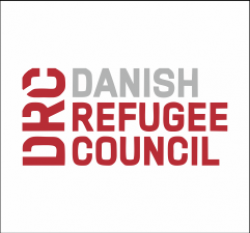This position is located in the Division of Administration, Registry of the International Residual Mechanism for Criminal Tribunals (IRMCT), Arusha Branch. The incumbent will work under the direct supervision of the Chief of Administration.
Budget preparation:
• Coordinates the preparation of the programme budget and performance reports of the Mechanism.
• Reviews, analyses and finalizes budget proposals in terms of staff and non-staff requirements for the two branches of the Mechanism. Provides detailed input with respect to resource requirements for budget submissions.
• Reviews, analyses and finalizes programme budget/financial implications to the General Assembly when warranted in light of additional mandates not known at the time of budget preparation.
• Provides substantive support to relevant intergovernmental and expert bodies in their budget review; participates in the team defending the budget submission and performance reports during ACABQ and General Assembly review.
Budget management and administration:
• Approves allotments, authorizes sub-allotments, including redeployment of funds when necessary, ensuring funds availability.
• Manages and monitors budget implementation and recommends reallocation of funds as necessary.
• Monitors expenditures to ensure that they remain within authorized levels.
• Administers and monitors extra-budgetary resources, including review of agreements and cost plans, ensuring compliance with regulations and rules and established policies and procedures.
• Reviews and finalizes budget performance reports, analysing variances between approved budgets and actual expenditures.
• Provides substantive support to relevant intergovernmental and expert bodies.
• Manages the staffing table of the organization.
General
• Provides advice and guidance, including training, to staff on budgetary and financial policies and procedures and programme planning.
• Participates in inter-departmental meetings on matters related to resource requirements, programming and budgetary issues.
• Keeps up to date on documents/reports/guidelines that have a bearing on matters related to programme and budgets, ensuring compliance with intergovernmental recommendations and decisions as well as with United Nations policies and procedures.
• Undertakes research and analysis of budgetary policies and procedures, makes recommendations for changes and/or modifications.
• Acts as certifying officer to ensure that proposed obligations and expenditures are in accordance with approved budgets and established regulations and rules.
• Represents the Mechanism in intra-departmental meetings involving budget matters.
• Organizes, manages and supervises the work of the Unit/Section.
• Incumbents may be asked to perform other related duties.
• Professionalism: Knowledge of financial and budgetary principles and practices, budget development and financial administration of resources. Ability to develop budgetary policies, procedures and new programs. Ability to formulate new strategies and technical approaches to budgetary matters. Shows pride in work and in achievements. Demonstrates professional competence and mastery of subject matter. Is conscientious and efficient in meeting commitments, observing deadlines and achieving results. Is motivated by professional rather than personal concerns. Shows persistence when faced with difficult problems or challenges. Remains calm in stressful situations. Takes responsibility for incorporating gender perspectives and ensuring the equal participation of women and men in all areas of work.
• Communication – Speaks and writes clearly and effectively. Listens to others, correctly interprets messages from others and responds appropriately. Asks questions to clarify and exhibits interest in having two-way communication. Tailors’ language, tone, style and format to match the audience. Demonstrates openness in sharing information and keeping people informed.
• Planning and Organising – Develops clear goals that are consistent with agreed strategies. Identifies priority activities and assignments, adjusts priorities as required. Allocates appropriate amount of time and resources for completing work. Foresees risks and allows for contingencies when planning. Monitors and adjusts plans and actions as necessary. Uses time efficiently.
• Empowering Others – Delegates responsibility, clarifies expectations, and gives staff autonomy in important areas of their work. Encourages others to set challenging goals. Holds others accountable for achieving results related to their area of responsibility. Genuinely values all staff members’ input and expertise. Shows appreciation and rewards achievement and effort. Involves others when making decisions that affect them.
• Judgement/Decision-making – Identifies the key issues in a complex situation and comes to the heart of the problem quickly. Gathers relevant information before making a decision. Considers positive and negative impacts of decisions prior to making them. Takes decisions with an eye to the impact on others and on the Organisation. Proposes a course of action or makes a recommendation based on all available information. Checks assumptions against facts. Determines that the actions proposed will satisfy the expressed and underlying needs for the decision. Makes tough decisions when necessary.
Advanced university degree in business administration, finance or related field. A first level university degree in combination with two additional years of qualifying experience may be accepted in lieu of an advanced university degree.
A minimum of seven (7) years of progressively responsible experience in accounting, finance, administration, budget, business administration or related area is required.
Demonstrated experience in report-writing on and administration of financial and budgetary policies and practices is required.
Experience with financial systems/finance modules of enterprise resource systems, such as Oracle, SAP or PeopleSoft, is required.
Experience in drafting and finalizing formal reports with substantive and financial content is required.
Experience in the coordination and the preparation of formal reports from inputs by other professional staff, is desirable.
English and French are the working languages of the Mechanism. For the post advertised, fluency in oral and written English is required. Knowledge of a second official UN language is an advantage
There may be an assessment exercise for qualified candidates followed by a competency-based interview.
The United Nations Secretariat is committed to achieving 50/50 gender balance in its staff. Female candidates are strongly encouraged to apply for this position.
The appointment is limited to the International Residual Mechanism for Criminal Tribunals. Appointment of the successful candidate on this position will be limited to the initial funding of the post. Extension of the appointment is subject to the extension of the mandate and/or the availability of funds. As the international tribunals are not integrated in the Secretariat, UN Staff Members serve on assignment or secondment from their parent department/office if selected. Appointments of staff members in the United Nations are subject to the authority of the Secretary-General. Staff Members are expected to move periodically to new functions in accordance with established rules and procedures and may in this context be reassigned by the Secretary-General throughout the Organization based on the changing needs and mandates.
The United Nations is committed to creating a diverse and inclusive environment of mutual respect. The United Nations recruits and employs staff regardless of gender identity, sexual orientation, race, religious, cultural and ethnic backgrounds or disabilities. Reasonable accommodation for applicants with disabilities may be provided to support participation in the recruitment process when requested and indicated in the application.
NOTE FOR PREVIOUSLY ROSTERED CANDIDATES
Roster candidates must express their interest and availability for published job openings by submitting an updated PHP and cover letter.
According to article 101, paragraph 3, of the Charter of the United Nations, the paramount consideration in the employment of the staff is the necessity of securing the highest standards of efficiency, competence, and integrity. Candidates will not be considered for employment with the United Nations if they have committed violations of international human rights law, violations of international humanitarian law, sexual exploitation, sexual abuse, or sexual harassment, or if there are reasonable grounds to believe that they have been involved in the commission of any of these acts. The term “sexual exploitation” means any actual or attempted abuse of a position of vulnerability, differential power, or trust, for sexual purposes, including, but not limited to, profiting monetarily, socially or politically from the sexual exploitation of another. The term “sexual abuse” means the actual or threatened physical intrusion of a sexual nature, whether by force or under unequal or coercive conditions. The term “sexual harassment” means any unwelcome conduct of a sexual nature that might reasonably be expected or be perceived to cause offence or humiliation, when such conduct interferes with work, is made a condition of employment or creates an intimidating, hostile or offensive work environment, and when the gravity of the conduct warrants the termination of the perpetrator’s working relationship. Candidates who have committed crimes other than minor traffic offences may not be considered for employment.
Due regard will be paid to the importance of recruiting the staff on as wide a geographical basis as possible. The United Nations places no restrictions on the eligibility of men and women to participate in any capacity and under conditions of equality in its principal and subsidiary organs. The United Nations Secretariat is a non-smoking environment.
Reasonable accommodation may be provided to applicants with disabilities upon request, to support their participation in the recruitment process.
The paramount consideration in the appointment, transfer, or promotion of staff shall be the necessity of securing the highest standards of efficiency, competence, and integrity. By accepting an offer of appointment, United Nations staff members are subject to the authority of the Secretary-General and assignment by him or her to any activities or offices of the United Nations in accordance with staff regulation 1.2 (c). In this context, all internationally recruited staff members shall be required to move periodically to discharge new functions within or across duty stations under conditions established by the Secretary-General.
Applicants are urged to follow carefully all instructions available in the online recruitment platform, inspira. For more detailed guidance, applicants may refer to the Manual for the Applicant, which can be accessed by clicking on “Manuals” hyper-link on the upper right side of the inspira account-holder homepage.
The evaluation of applicants will be conducted on the basis of the information submitted in the application according to the evaluation criteria of the job opening and the applicable internal legislations of the United Nations including the Charter of the United Nations, resolutions of the General Assembly, the Staff Regulations and Rules, administrative issuances and guidelines. Applicants must provide complete and accurate information pertaining to their personal profile and qualifications according to the instructions provided in inspira to be considered for the current job opening. No amendment, addition, deletion, revision or modification shall be made to applications that have been submitted. Candidates under serious consideration for selection will be subject to reference checks to verify the information provided in the application.
Job openings advertised on the Careers Portal will be removed at 11:59 p.m. (New York time) on the deadline date.
THE UNITED NATIONS DOES NOT CHARGE A FEE AT ANY STAGE OF THE RECRUITMENT PROCESS (APPLICATION, INTERVIEW MEETING, PROCESSING, OR TRAINING). THE UNITED NATIONS DOES NOT CONCERN ITSELF WITH INFORMATION ON APPLICANTS’ BANK ACCOUNTS.



